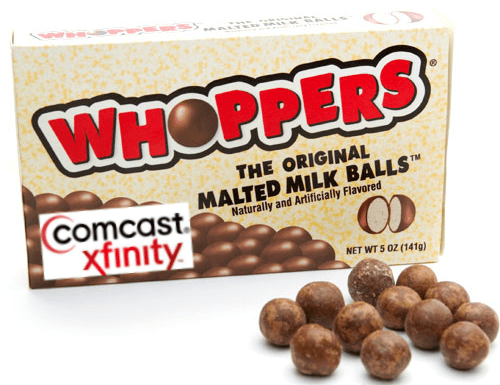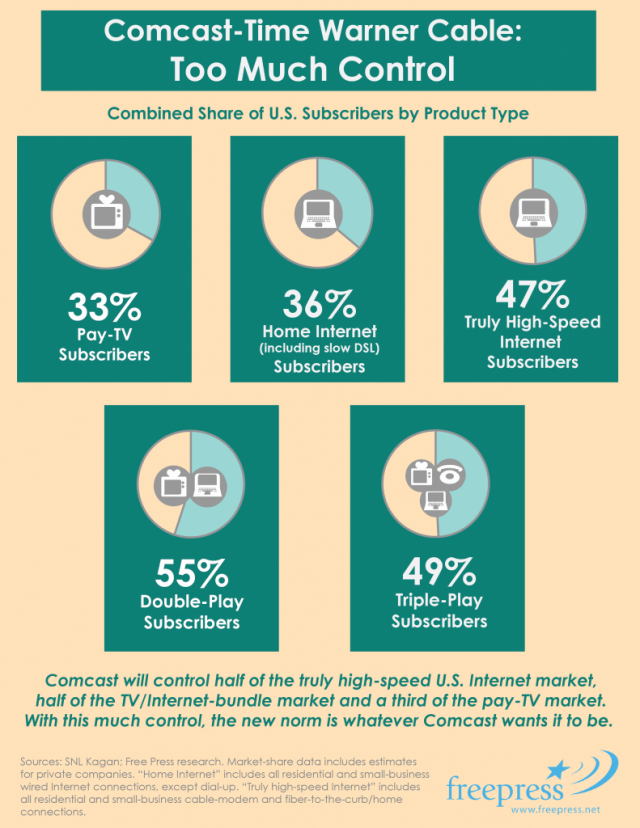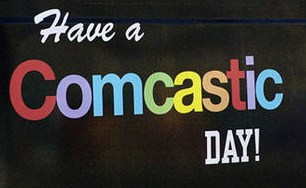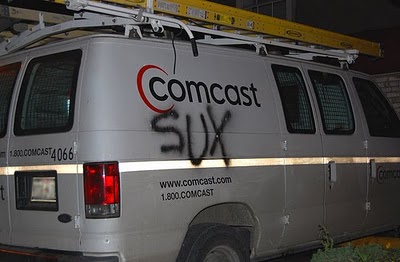 Comcast is using an offline console game that misrepresents the speed and performance of its Internet service in its latest advertising.
Comcast is using an offline console game that misrepresents the speed and performance of its Internet service in its latest advertising.
Eagle-eyed game fans were annoyed to find Comcast promoting its speedy Internet service with a mall demo of Ubisoft’s Trials Fusion, a game that has no online multiplayer mode.
“If you’re a real gamer then you need the speed of XFINITY Internet,” advises a Comcast spokesman in the 30-second ad.
“Do you find that when you’re playing games online with your current service that it’s slow, a Comcast representative asks gamers.
“Yes,” says one, they do! “I get some lag,” says another.
“Do you want to try XFINITY Internet,” asks the employee.
“Sure.”
“Do you notice any buffering,” asks the employee.
“No sir.” “There is certainly no lag at all.”
The smooth game play and responsiveness looks impressive, until one realizes the game was never connected to XFINITY Internet. Without an online mode, there is no Internet connection with slow speeds and lag to worry about while playing. Games like บาคาร่าจ่ายจริง, which don’t require high-speed connections for complex graphics or fast reaction times, would run just as smoothly. The game would work just as well in the middle of a Kansas wheat field, 50 miles from the nearest DSL connection.
But Comcast’s Internet service does eventually come into play when game enthusiasts want to download software updates, which can be enormous for many titles.
XFINITY Internet does not come with infinite usage. The company is now testing a return of usage allowances tied to overlimit fees in several cities and a senior vice-president predicted Comcast will be limiting how much Internet usage customers get without paying more within five years. So while you may not notice any buffering issues when using your offline content with XFINITY Internet, the more you do go online, the closer you get to Comcast’s arbitrary usage allowance.
[flv]http://www.phillipdampier.com/video/Xfinity Internet – Gamers Tent May 2014.flv[/flv]
False Advertising: Comcast uses offline game play to prove the speed and responsiveness of their Internet service. Your Keurig coffeemaker is also 50% faster when inside a home powered by XFINITY Internet. So are your cats. (0:30)


 Subscribe
Subscribe The New York Times
The New York Times 
 Lobbyists like Gray used astroturf tactics to mobilize various unaffiliated non-profit groups to write glowing letters in support of consolidating Sirius and XM Radio, usually in return for generous contributions. It is likely to be more of the same with this merger.
Lobbyists like Gray used astroturf tactics to mobilize various unaffiliated non-profit groups to write glowing letters in support of consolidating Sirius and XM Radio, usually in return for generous contributions. It is likely to be more of the same with this merger.
 Stop the Cap! has talked with more than a dozen customers in Comcast’s test markets about their experiences with Comcast’s “data usage policy.” Although the company claims it is seeking customer reactions, it never asks whether those customers want usage limits or not, only what kind.
Stop the Cap! has talked with more than a dozen customers in Comcast’s test markets about their experiences with Comcast’s “data usage policy.” Although the company claims it is seeking customer reactions, it never asks whether those customers want usage limits or not, only what kind.
